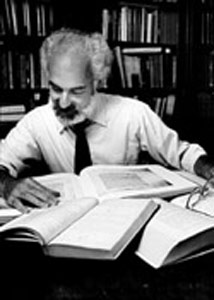Best Books of 2005 - Scripture again

Biblical Interpretation in Ancient Israel by Michael Fishbane
A common knock against the Judaism of Jesus' time is that it was legalistic, Pharisaical, and even sometimes dishonest in its interpretation of Biblical texts, using flights of fancy to paper over the clear sense of a text that might threaten the religious establishment. This caricature has been weakened since the 1960's, when a revolution in studies of Saint Paul helped demonstrate that he was actually very much related to the Judaism of his times, but the problems of this line of thought still linger in a misunderstanding of Jews and even a misunderstanding of the writings of the Church Fathers.
Biblical Interpretation is a difficult book, make no mistake. If you are OK skipping over tricky discussions about variations of Hebrew texts and the like (and Prof. Fishbane is scrupulous in his scholarship, so you needn't worry), the argument is not itself complicated. The basic idea is actually pretty simple. Now that most scholars, Churchmen and Jews alike agree that the Old Testament was written and edited by a variety of persons over many centuries of changing cultural conditions, a careful scholar can actually detect ways in which the Bible's text was altered at various points to keep it relevant to life. But these alterations were by no means cynically or haphazardly applied. Fishbane meticulously shows how changes were always made to be consistent in some way with some other part of scripture. The monastic maxim that scripture interprets scripture was already being used within the bible itself!
The picture of Judaism that emerges is a vibrant, challenging religion in which the scholars were also pastors, men passionately interested in making sure that the Law of Moses could be accomplished by all without in any way compromising God's just demands within the covenant. What used to appear as rabbinic nitpicking (or, as I mentioned above, the sort of attention to detail found in the Father, such as the several chapters devoted to Greek prepositions in Basil's On the Holy Spirit) emerges as loving attention to God's saving Word. I used this book as an entry into lectio divina, with good effect (note: that is Prof. Fishbane above, not me doing lectio, though we emply similar methods of arranging our books).

No comments:
Post a Comment